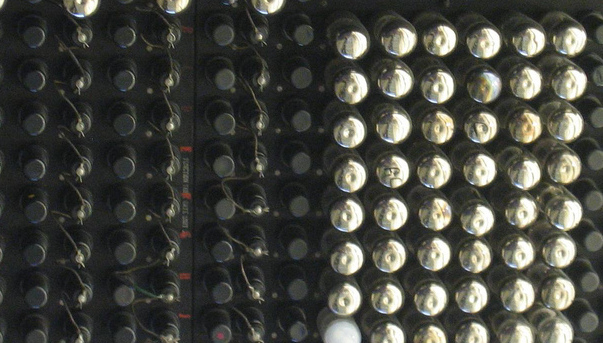My crossword puzzle web app grew up somewhat: now it is (optionally) backed by a database.
How we ended up here: I started this project from a completely different, and still mostly unexplored, direction: I wanted to be able to construct crosswords while on the go, since I occasionally find myself with some downtime and no keyboard. Just having a grid to type into is really enough for that — paper grids will do in a pinch, but who wants to kill trees and carry around a pencil and paper all the time.
Once I had a grid component, as a test, I built out a puzzle-solving application using 100% client-side code. That is, the JS can parse the puzzle files, render UI, save state locally, handle all the interaction without talking to a web server other than for the initial download. Then, naturally, creeping featurism took over and it became my daily solving app for NYT puzzles.
Doing everything client-side is nice because you never need the internet. Having a database backend provides some upsides though: you can more easily track progress (“how fast am I solving puzzles?”), and you can sync state across multiple devices: start on the desktop and move to phone later. Once you have syncing, you can also do collaborative puzzle solving, which is nice as the wife and I like to do the Sundays together. So if you go to this site, you can upload a puzzle, copy and share the resulting URL (randomized hash-path id indicates the ‘solution in progress’), and do an actual “crosswords with friends” unlike the branded game of the same name which is only solo play. I reserve the right to delete any data or break this feature at any time: it mostly exists for my current fickle amusement.
While the frontend is being written in a language I mostly don’t care for and don’t really know that well (ReactJS), I decided I might as well try learning yet another language on the backend. My first golang foray and a worse-is-better development paradigm led to this terrible non-idiomatic code on my github (here is the JS frontend). PRs welcome.
I’m not yet sure how I feel about Go. On the one hand, the “having types” and “lack of 2to3 transition disaster” features put it somewhat ahead of Python, and it is not as crusty as Java. On the other hand, those are fairly low bars and Go feels like a 90s language with a few minor changes. I haven’t spent enough time with it to get a feel either way about performance.
The ACPT online tournament, it turns out, uses a Java applet for the client, and it’s getting harder to find browsers that support that (I had to use an ESR Firefox release, which felt like going back in time 10 years even to this Debian-stable user). I am hoping that by next year they will have some similar kind of JS UI in place.
As far as the ACPT itself: it was a lot of fun. Out of the seven puzzles, I finished four with time to spare, my best time being just over ten minutes on puzzle number four. My worst puzzle was the first in which I completed only 50/76 answers. Overall I ended up (as of last time I checked) in 87th place out of 141, so, firmly on the left side of the curve. Oh well, plenty of room to improve.
